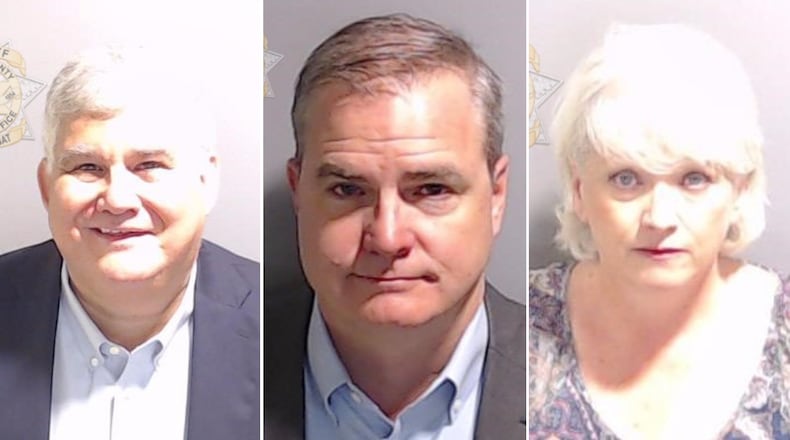All three Georgia “alternative” electors charged in a sweeping racketeering prosecution in Fulton County have asked for their cases to be moved to federal court.
State Sen. Shawn Still, R-Norcross, filed a motion late Thursday, while Cathy Latham, former chairwoman of the Coffee County Republican Party, filed hers on Friday.
They were among the 16 Republicans who met in December 2020 to cast their votes for Donald Trump, even though Democrat Joe Biden narrowly won the presidential race in Georgia.
Former state Republican Party Chairman David Shafer, another of the GOP electors, moved earlier in the week to have his case transferred.
The three each argued that when they served as electors they were acting as federal officials — meaning their cases should be heard in U.S. District Court. A trial in federal court would likely draw a jurors from a broader — and more politically conservative — swath of people than Fulton County, which is solidly Democratic
To have state cases transferred to federal court, defendants must show they were federal officers performing federal duties. They also must raise a plausible federal defense. Among other things, they argue that they are immune from state prosecution because state laws are pre-empted by federal laws, and they were acting in a federal capacity as an elector.
The phony electors aren’t the only ones trying to beat a path to the federal courthouse. Former White House Chief of Staff Mark Meadows and former Justice Department official Jeffrey Clark also are seeking to have their cases moved. A hearing in Meadows’ case has been set for Monday; Clark has a September court date to make his case. Trump is expected to file his own request soon.
The Republican electors say they met on the legal advice of attorneys who said it was necessary to preserve Trump’s legal rights as he fought to overturn the election in the courts. State and federal prosecutors have produced evidence that Trump’s team devised the fake electors scheme to convince state legislators and Vice President Mike Pence to overturn the election on their own.
Last week’s Fulton County indictment charged 19 people for allegedly conspiring to overturn the election. It charged Still with racketeering, impersonating a public officer, two counts of first degree forgery, criminal attempt to commit filing false documents and two counts of false statements and writings.
Under Georgia law, Still could be suspended from his senate post while he awaits the resolution of his case.
About the Author
Keep Reading
The Latest
Featured




